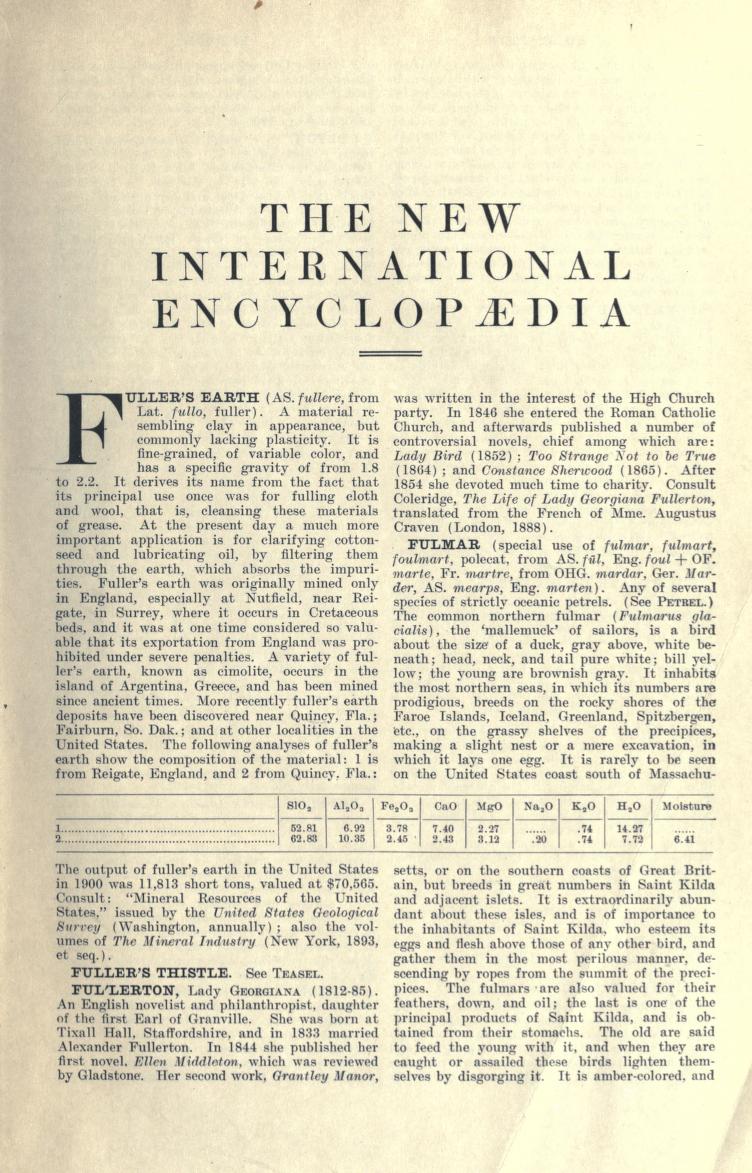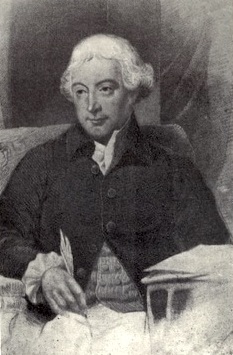|
Basil Lanneau Gildersleeve
Basil Lanneau Gildersleeve (October 23, 1831January 9, 1924) was an American classical scholar. An author of numerous works, and founding editor of the ''American Journal of Philology'', he has been credited with contributions to the syntax of Greek and Latin, and the history of Greek literature. Biography He was born in Charleston, South Carolina to Emma Louisa Lanneau (daughter of Bazille Lanneau and Hannah Vinyard) and Benjamin Gildersleeve (1791–1875). His father was a Presbyterian evangelist, and editor of the Charleston ''Christian Observer'' from 1826 to 1845, of the Richmond, Virginia ''Watchman and Observer'' from 1845 to 1856, and of ''The Central Presbyterian'' from 1856 to 1860. His maternal grandfather was Bazile Lanneau (born Basile Lanoue), one of the many French Acadians who were forcibly expelled by the British from present day Nova Scotia during the French and Indian War. His maternal grandmother was Hannah Vinyard. He graduated from Princeton in 1849 at the ... [...More Info...] [...Related Items...] OR: [Wikipedia] [Google] [Baidu] |
Charleston, South Carolina
Charleston is the largest city in the U.S. state of South Carolina, the county seat of Charleston County, South Carolina, Charleston County, and the principal city in the Charleston metropolitan area, South Carolina, Charleston–North Charleston metropolitan area. The city lies just south of the geographical midpoint of South Carolina's coastline on Charleston Harbor, an inlet of the Atlantic Ocean formed by the confluence of the Ashley River (South Carolina), Ashley, Cooper River (South Carolina), Cooper, and Wando River, Wando rivers. Charleston had a population of 150,277 at the 2020 United States census, 2020 census. The 2020 population of the Charleston metropolitan area, comprising Berkeley County, South Carolina, Berkeley, Charleston County, South Carolina, Charleston, and Dorchester County, South Carolina, Dorchester counties, was 799,636 residents, the third-largest in the state and the 74th-largest metropolitan statistical area in the United States. Charleston was f ... [...More Info...] [...Related Items...] OR: [Wikipedia] [Google] [Baidu] |
The New International Encyclopedia
''The New International Encyclopedia'' was an American encyclopedia first published in 1902 by Dodd, Mead and Company. It descended from the ''International Cyclopaedia'' (1884) and was updated in 1906, 1914 and 1926. History ''The New International Encyclopedia'' was the successor of the ''International Cyclopaedia'' (1884). Initially, ''The International Cyclopaedia'' was largely a reprint of Alden's ''Library of Universal Knowledge'', which was a reprint of the British ''Chambers's Encyclopaedia''. The title was changed to ''The New International Encyclopedia'' in 1902, with editors Harry Thurston Peck, Daniel Coit Gilman, and Frank Moore Colby. The encyclopedia was popular and reprints were made in 1904, 1905, 1907 (corrected and expanded to 20 volumes), 1909 and 1911. The 2nd edition appeared from 1914 to 1917 in 24 volumes. With Peck and Gilman deceased, Colby was joined by a new editor, Talcott Williams. This edition was set up from new type and thoroughly revised. It w ... [...More Info...] [...Related Items...] OR: [Wikipedia] [Google] [Baidu] |
American Civil War
The American Civil War (April 12, 1861 – May 26, 1865; also known by other names) was a civil war in the United States. It was fought between the Union ("the North") and the Confederacy ("the South"), the latter formed by states that had seceded. The central cause of the war was the dispute over whether slavery would be permitted to expand into the western territories, leading to more slave states, or be prevented from doing so, which was widely believed would place slavery on a course of ultimate extinction. Decades of political controversy over slavery were brought to a head by the victory in the 1860 U.S. presidential election of Abraham Lincoln, who opposed slavery's expansion into the west. An initial seven southern slave states responded to Lincoln's victory by seceding from the United States and, in 1861, forming the Confederacy. The Confederacy seized U.S. forts and other federal assets within their borders. Led by Confederate President Jefferson ... [...More Info...] [...Related Items...] OR: [Wikipedia] [Google] [Baidu] |
Confederate States Army
The Confederate States Army, also called the Confederate Army or the Southern Army, was the military land force of the Confederate States of America (commonly referred to as the Confederacy) during the American Civil War (1861–1865), fighting against the United States forces to win the independence of the Southern states and uphold Slavery in the United States, the institution of slavery. On February 28, 1861, the Provisional Confederate Congress established a provisional volunteer army and gave control over military operations and authority for mustering state forces and volunteers to the newly chosen Confederate president, Jefferson Davis. Davis was a graduate of the United States Military Academy, U.S. Military Academy, and colonel of a volunteer regiment during the Mexican–American War. He had also been a United States senator from Mississippi and United States Secretary of War, U.S. Secretary of War under President Franklin Pierce. On March 1, 1861, on behalf of the Conf ... [...More Info...] [...Related Items...] OR: [Wikipedia] [Google] [Baidu] |
Friedrich Ritschl
Friedrich Wilhelm Ritschl (6 April 1806 – 9 November 1876) was a German scholar best known for his studies of Plautus. Biography Ritschl was born in Großvargula, in present-day Thuringia. His family, in which culture and poverty were hereditary, were Protestants who had migrated several generations earlier from Bohemia. Ritschl was fortunate in his school training, at a time when the great reform in the higher schools of Prussia had not yet been thoroughly carried out. His chief teacher, Spitzner, a pupil of Gottfried Hermann, divined the boy's genius and allowed it free growth, applying only so much either of stimulus or of restraint as was absolutely needful. After a wasted year at the University of Leipzig, where Hermann stood at the zenith of his fame, Ritschl passed in 1826 to Halle. Here he came under the powerful influence of Christian Karl Reisig, a young Hermannianer with exceptional talent, a fascinating personality and a rare gift for instilling into his pupils his ... [...More Info...] [...Related Items...] OR: [Wikipedia] [Google] [Baidu] |
Berlin
Berlin is Capital of Germany, the capital and largest city of Germany, both by area and List of cities in Germany by population, by population. Its more than 3.85 million inhabitants make it the European Union's List of cities in the European Union by population within city limits, most populous city, as measured by population within city limits having gained this status after the United Kingdom's, and thus London's, Brexit, departure from the European Union. Simultaneously, the city is one of the states of Germany, and is the List of German states by area, third smallest state in the country in terms of area. Berlin is surrounded by the state of Brandenburg, and Brandenburg's capital Potsdam is nearby. The urban area of Berlin has a population of over 4.5 million and is therefore the most populous urban area in Germany. The Berlin/Brandenburg Metropolitan Region, Berlin-Brandenburg capital region has around 6.2 million inhabitants and is Germany's second-largest metropolitan reg ... [...More Info...] [...Related Items...] OR: [Wikipedia] [Google] [Baidu] |
French And Indian War
The French and Indian War (1754–1763) was a theater of the Seven Years' War, which pitted the North American colonies of the British Empire against those of the French, each side being supported by various Native American tribes. At the start of the war, the French colonies had a population of roughly 60,000 settlers, compared with 2 million in the British colonies. The outnumbered French particularly depended on their native allies. Two years into the French and Indian War, in 1756, Great Britain declared war on France, beginning the worldwide Seven Years' War. Many view the French and Indian War as being merely the American theater of this conflict; however, in the United States the French and Indian War is viewed as a singular conflict which was not associated with any European war. French Canadians call it the ('War of the Conquest').: 1756–1763 The British colonists were supported at various times by the Iroquois, Catawba, and Cherokee tribes, and the French ... [...More Info...] [...Related Items...] OR: [Wikipedia] [Google] [Baidu] |
Nova Scotia
Nova Scotia ( ; ; ) is one of the thirteen provinces and territories of Canada. It is one of the three Maritime provinces and one of the four Atlantic provinces. Nova Scotia is Latin for "New Scotland". Most of the population are native English-speakers, and the province's population is 969,383 according to the 2021 Census. It is the most populous of Canada's Atlantic provinces. It is the country's second-most densely populated province and second-smallest province by area, both after Prince Edward Island. Its area of includes Cape Breton Island and 3,800 other coastal islands. The Nova Scotia peninsula is connected to the rest of North America by the Isthmus of Chignecto, on which the province's land border with New Brunswick is located. The province borders the Bay of Fundy and Gulf of Maine to the west and the Atlantic Ocean to the south and east, and is separated from Prince Edward Island and the island of Newfoundland (island), Newfoundland by the Northumberland Stra ... [...More Info...] [...Related Items...] OR: [Wikipedia] [Google] [Baidu] |
Expulsion Of The Acadians
The Expulsion of the Acadians, also known as the Great Upheaval, the Great Expulsion, the Great Deportation, and the Deportation of the Acadians (french: Le Grand Dérangement or ), was the forced removal, by the British, of the Acadian people from parts of a Canadian-American region historically known as ''Acadia'', between 1755–1764. The area included the present-day Canadian Maritime provinces of Nova Scotia, New Brunswick, and Prince Edward Island, and the present-day U.S. state of Maine. The Expulsion, which caused the deaths of thousands of people, occurred during the French and Indian War (the North American theatre of the Seven Years' War) and was part of the British military campaign against New France. The British first deported Acadians to the Thirteen Colonies, and after 1758, transported additional Acadians to Britain and France. In all, of the 14,100 Acadians in the region, approximately 11,500 were deported, at least 5,000 Acadians died of disease, starvat ... [...More Info...] [...Related Items...] OR: [Wikipedia] [Google] [Baidu] |
Acadians
The Acadians (french: Acadiens , ) are an ethnic group descended from the French who settled in the New France colony of Acadia during the 17th and 18th centuries. Most Acadians live in the region of Acadia, as it is the region where the descendants of a few Acadians who escaped the Expulsion of the Acadians (aka The Great Upheaval / ''Le Grand Dérangement'') re-settled. Most Acadians in Canada continue to live in majority French-speaking communities, notably those in New Brunswick where Acadians and Francophones are granted autonomy in areas such as education and health. Acadia was one of the 5 regions of New France. Acadia was located in what is now Eastern Canada's Maritime provinces, as well as parts of Quebec and present-day Maine to the Kennebec River. It was ethnically, geographically and administratively different from the other French colonies and the French colony of Canada (modern-day Quebec). As a result, the Acadians developed a distinct history and cultu ... [...More Info...] [...Related Items...] OR: [Wikipedia] [Google] [Baidu] |
Richmond, Virginia
(Thus do we reach the stars) , image_map = , mapsize = 250 px , map_caption = Location within Virginia , pushpin_map = Virginia#USA , pushpin_label = Richmond , pushpin_map_caption = Location within Virginia##Location within the contiguous United States , pushpin_relief = yes , coordinates = , subdivision_type = Country , subdivision_name = , subdivision_type1 = State , subdivision_name1 = , established_date = 1742 , , named_for = Richmond, United Kingdom , government_type = , leader_title = Mayor , leader_name = Levar Stoney ( D) , total_type = City , area_magnitude = 1 E8 , area_total_sq_mi = 62.57 , area_land_sq_mi = 59.92 , area_water_sq_mi = 2.65 , elevation_m = 50.7 , elevation_ft = 166.45 ... [...More Info...] [...Related Items...] OR: [Wikipedia] [Google] [Baidu] |







